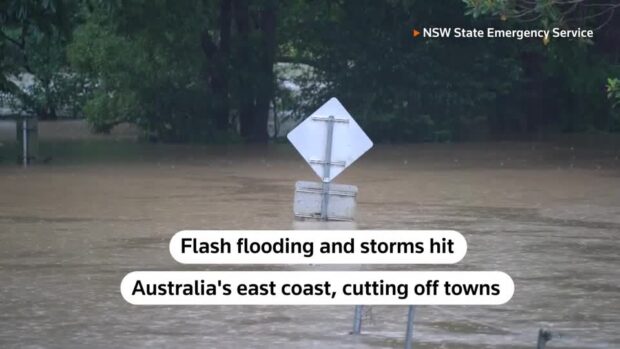
REUTERS
SYDNEY — Heavy rains triggered flash flooding across parts of Australia’s east on Tuesday, inundating roads, cutting off towns and damaging properties, as authorities advised residents in low-lying areas to move to higher ground.
Several regions across southeastern Queensland and northern New South Wales have picked up at least two months’ worth of rainfall over the last three days. Springbrook in Queensland received 514 mm (20 inches) of rain over the last 48 hours, more than double the January average.
Queensland Deputy Premier Cameron Dick urged people to stay off roads until the weather cleared.
“Roads will be dangerous and life-threatening flash flooding could occur in places you don’t anticipate,” Dick said during a press briefing.
Rainfall of up to 350 mm (14 inches) is forecast over the next 24 hours, with the Bureau of Meteorology issuing a severe weather warning stretching over 250 kms (155 miles) across the Wide Bay Burnett region and southeast of Queensland.
“With these quick bursts of intense rainfall, the rivers and creeks are rising extremely quickly and catching people unaware,” Queensland emergency services Deputy Commissioner Kevin Walsh said. “The next 24 hours are important.”
In neighboring New South Wales state, dozens of people were rescued from campgrounds, which usually become crowded during the holiday weeks, cut off by floodwater.
Television footage showed rescue crews wading through waist-high water, cars stuck in flood waters, fallen trees on top of roofs and water running through houses.
Some regions pounded by the wild weather were already hit by another storm over the Christmas holidays that killed 10 people and knocked off power for tens of thousands. About 11,000 properties are still without power.
Climate change has amplified Australia’s weather extremes in recent years, experts say. The El Nino weather phenomenon, which can provoke wildfires, cyclones and prolonged drought, is also affecting the country during its December-February summer.